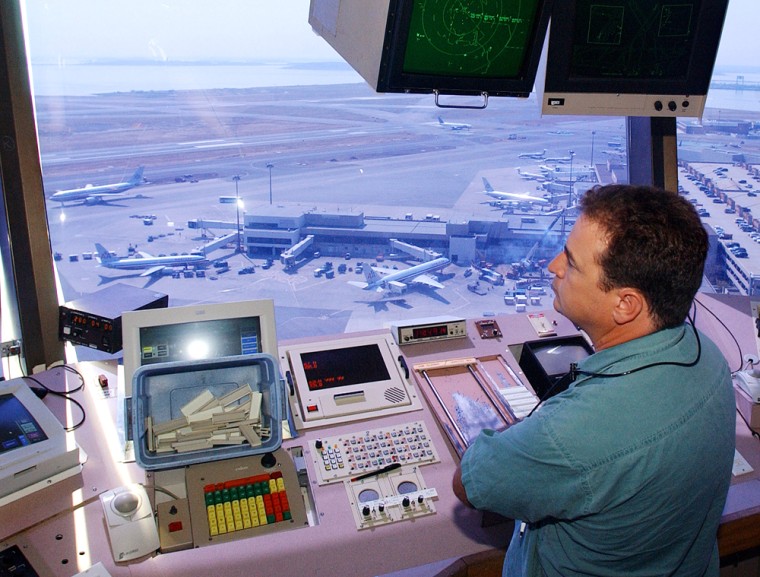Air traffic controllers are taking aim at a proposal to consolidate dozens of meteorologists scattered around the nation into two centers, saying it could deprive airports of local and on-the-spot weather expertise crucial to flight crews.
The Federal Aviation Administration is considering whether to consolidate the 84 meteorologists serving at 21 air centers across the nation to two major centers in Kansas City, Mo., and College Park, Md.
"We're considering ways to reduce costs while ensuring the FAA air traffic controllers receive appropriate and timely weather reports," said FAA spokeswoman Kathleen Bergen said. "This isn't a safety issue. We're just trying to find ways to spend tax dollars more wisely and use the best technology available."
The FAA said there is no final proposal yet. The agency on Monday extended a response period to the plan by 30 days.
Unions representing air traffic controllers say the consolidation could get rid of knowledge of local weather patterns — and risk the lives of passengers.
"The people in Kansas City would be forecasting from the Virgin Islands to the Ohio Valley and out to Honolulu," said Dan Sobien, president of the National Weather Service Employees Organization. "There's no way to have that kind of expertise. They could be dealing with a blizzard and a hurricane at the same time."
The current system has "high altitude centers," which often cover several states. It was put into place more than three decades ago after a deadly plane crashed in Georgia during a severe thunderstorm. Federal safety officials said problems with quickly analyzing the conditions may have contributed to the crash.
The meteorologists said that technological advances can't make up for on-the-ground expertise.
"I worry whether or not the meteorologists there, not familiar with the local weather nuances in our airspace, will be able to act on our local behalf to the best advantage of the flying public," said Craig Boehne, a representative for the National Air Traffic Controllers Association in Minneapolis.
Sobien, who has been a meteorologist for 23 years, said he knows the weather patterns in Tampa, Fla., very well. "But don't ask me what's happening in New Mexico, because a thunderstorm here is completely different from a thunderstorm there," he said.
The FAA said any proposal would be put through a rigorous evaluation.
"No matter what plan is ultimately put in place, the FAA would never adopt an initiative that would affect safety or reduce the amount of weather information that's going to our controllers," Bergen said.
